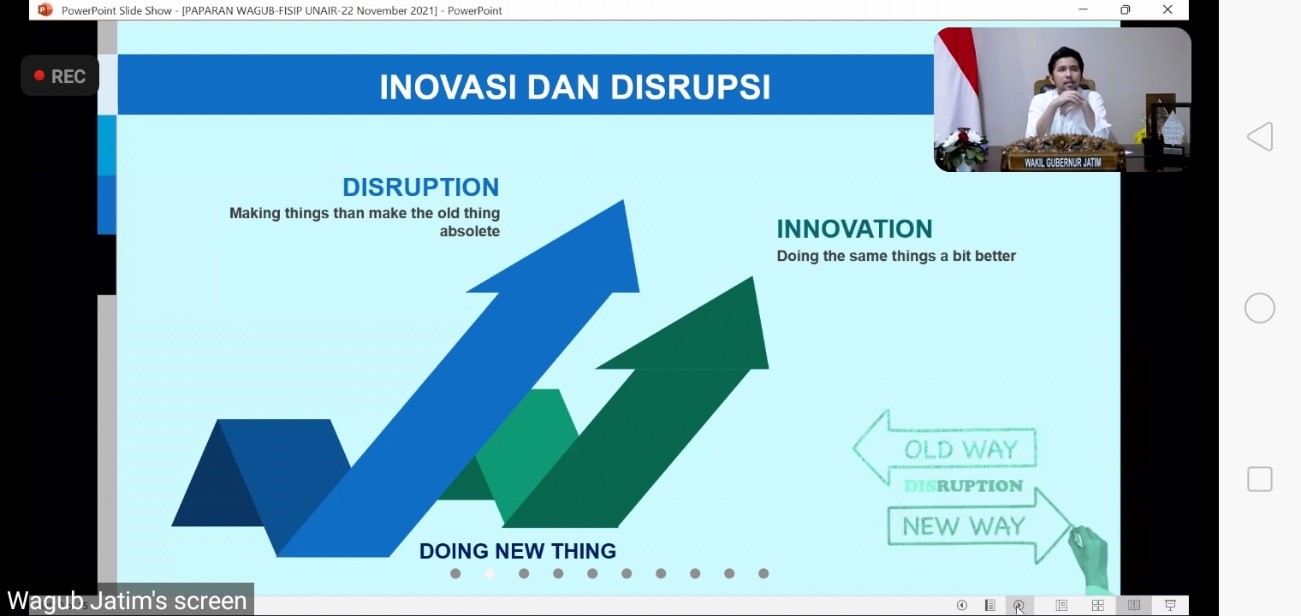UNAIR NEWS – The guest lecture for the doctoral program of Social Sciences Faculty of Social and Political Sciences (FISIP) Universitas Airlangga (UNAIR), held on Monday, November 22, 2021, discussed “Critical Perspectives in Administration and Public Policy”. The guest lecture presented the Vice Governor of East Java, Dr. Emil Elestianto Dardak, B. Bus., M.Sc.
Emil explained that disruption means relentless innovation. Disruption is essentially something that becomes irrelevant or no longer appropriate. Disruption is the cause of innovation. The faster the innovation, the more disruption is generated because disruption arises from innovation.
“What makes disruption accelerate is innovation itself. For example, in irreducible services, humans create and perform services at the same time and place. And also hybrid services then go to automated services so that machines may replace people. This is where we push for e-government, open government, and smart government,” he explained.
Furthermore, Emil explained the urgency of innovation in public policy in the era of disruption. Emil said that innovations were needed towards digitalization. The urgency includes new innovations, public policy process innovations, organizational innovations, conceptual innovations, system innovations or fundamental changes to the system, and radical changes in rationality such as shifting general views and mentality of government agency employees.
“Often what happens, we go digital , but the process is still complicated, the process is still the same so that there is a pile of files on bureaucrats and there is no fast process. This is what innovation in terms of process must do: simplify the process by understanding that digitization makes the process simpler. So, for example, if we get digital files from the public, but for our internal processes, we reprint them again, it means we’re doing the old ways,” said Emil.
Then, Emil explained that there were four important aspects of implementing public policies. First, who involved in the implementation of a policy. Second, what principles considered in the administrative process. Third, the level of compliance with the implemented policies. And fourth, what impacts of implementing the policy.
“Important aspects of public policy implementation include who is involved in policy implementation, what kind of administrative process, including the political reality, what kind of system, how the compliance is, and what kind of impact the implementation will have,” he explained. (*)
Author: Wiji Astutik
Editor: Binti Q. Masruroh





